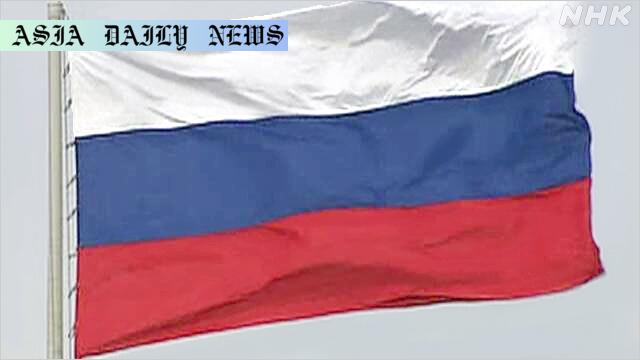Peace Talks – A Russian delegation has arrived in Turkey for direct talks with Ukraine, but timing uncertainty looms as Kyiv remains silent.
Russian delegation travels to Turkey for direct talks with Ukraine.
Kyiv remains silent on timing, causing uncertainty amid negotiations.
Putin sends aide Vladimir Medinsky to lead the Russian delegation.
Ukrainian President Zelenskyy plans to meet Turkish President Erdogan first.

Russian Delegation Arrives in Turkey for Talks With Ukraine
A Russian delegation has recently arrived in Turkey to engage in direct peace talks with Ukrainian officials amidst the ongoing conflict between both nations. However, Kyiv is yet to announce an official confirmation regarding the meeting or its particulars, leaving many speculations about the format and time of this high-stakes meeting. To underline the seriousness of these discussions, President Vladimir Putin has entrusted his aide, Vladimir Medinsky, to lead the Russian delegation, while Ukrainian President Volodymyr Zelenskyy has expressed the desire for a personal meeting with Putin. Nevertheless, the Kremlin has reaffirmed that President Putin will not be attending these talks.
The proposed meeting venue is Istanbul, Turkey, where stringent security measures have already been implemented. Reporters from around the world have started converging at the location, indicating the significant international attention this meeting has garnered. Russian state-run agencies have conveyed conflicting reports on the exact start time for the discussions, highlighting some level of operational ambiguity.
Zelenskyy and Erdogan: A Strategic Meeting First
In a testament to the diplomatic process, Zelenskyy has conveyed his preference to meet with Turkish President Recep Tayyip Erdogan in Ankara before moving forward with any concrete decision-making regarding Russia. According to reports from AFP and Reuters, President Zelenskyy sees Erdogan as a key diplomatic intermediary in potentially shaping the outcomes of peace talks. Erdogan himself has been actively positioning Turkey as an influential voice in bringing about peace and stability in the region, thereby further asserting Turkey’s geopolitical role.
As the world watches closely, the uncertainty around when the talks might begin continues to be a central narrative. Turkish officials stated that the meeting between the two presidents would occur sometime after 1 PM in Ankara, providing further insight into the unfolding schedule of events. The strategic importance of this meeting cannot be understated as nations seek resolution to a conflict that has caused widespread global ramifications.
Significance and Global Attention
The ongoing conflict between Russia and Ukraine has left countless lives uprooted and generated economic shocks across bordering nations and beyond. This makes the prospect of peace talks a glimmer of hope amidst a bleak landscape. The involvement of Turkey as a neutral platform, with Erdogan aiming to mediate effectively, underscores the importance of third-party diplomacy in such high-stakes situations.
Historically, peace talks of this magnitude have served as landmark moments to address grievances and outline trust-building measures between feuding states. Whether these discussions yield tangible results remains to be seen, but their significance in starting a conversation is undeniable. As the international community closely follows these developments, many hope for a peaceful resolution that could prevent further escalation and loss of life.
In conclusion, the talks in Turkey represent an important diplomatic effort to reduce tensions and foster some semblance of understanding between Russia and Ukraine. The global community eagerly awaits this unfolding narrative, with hopes that these discussions could be the stepping stone towards peace and stability in the region.
Commentary
The Importance of Dialogue in Conflict Resolution
The ongoing conflict between Russia and Ukraine has shaken the world to its core, making the pursuit of peace an urgent priority. The recent arrival of a Russian delegation in Turkey highlights a shift towards dialogue, a critical step that may eventually lead to de-escalation. While Kyiv’s silence about the meeting may raise questions, the mere presence of both parties in Istanbul demonstrates the willingness to engage, even if cautiously.
History has shown that dialogue plays a pivotal role in resolving conflicts, no matter how entrenched or prolonged. With Turkish President Erdogan stepping into a mediator role, this situation underscores the importance of third-party intervention in fostering constructive discussions. Erdogan’s involvement not only brings neutral territory into play but also positions Turkey as a vital diplomatic player on the global stage. However, achieving meaningful outcomes from these discussions requires more than just willingness; it necessitates trust, mutual respect, and a genuine recognition of each other’s grievances.
Potential Roadblocks and Bridging Divides
That being said, there are numerous challenges ahead. For one, the absence of Russian President Vladimir Putin at these talks could signal a lack of high-level commitment, potentially stalling substantive progress. Similarly, Ukrainian President Zelenskyy’s preference to first meet Erdogan underscores Kyiv’s cautious approach, possibly indicating skepticism about Russia’s intentions. These roadblocks must be addressed carefully to avoid derailing the much-needed talks.
Peace talks are never straightforward. They require patience, persistence, and the willingness to make concessions. These discussions in Turkey are a critical start, albeit a fragile one. The world will be watching closely, hoping that this could be the first of many steps toward a comprehensive resolution.
The Global Implications of Peace
Beyond the immediate stakeholders, the outcomes of these talks carry implications for the entire world. The economic disruptions caused by this conflict have been far-reaching, affecting energy supplies, trade, and financial markets. Stability in the region would not only be a victory for Ukraine and its people but also for the countless nations indirectly affected by this turmoil.
Ultimately, this is a moment for diplomacy to prevail over aggression. While skepticism and uncertainty persist, the potential for a peaceful resolution outweighs the risks of failure. It is crucial that global leaders, observers, and organizations continue to support diplomatic channels like these as they work to bring about lasting peace.


